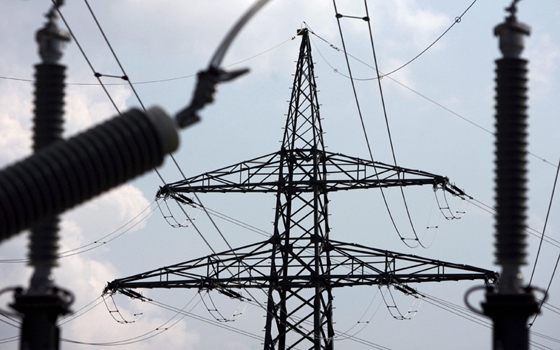While over time industry should be one of the major beneficiaries of Lebanon’s plans to tap its offshore oil and gas reserves, in the short term businesses are bracing themselves for more blackouts and power rationing as the country struggles to meet rising demand for electricity.
Lebanon has kick-started the process which it hopes will lead to first-time drilling for gas off its coast at the end of 2015. The government will be hoping that its newfound reserves play a key part in cutting its spiraling energy bill and fuelling its power stations, helping to close the door on an era of interrupted electricity supplies that have long played havoc with manufacturing output.
Ageing plants have left Lebanon’s state-owned power provider, Electricité Du Liban (EDL), struggling to maintain output, with rising demand serving only to heighten the challenge the country faces. Daily output currently averages 1500 megawatts (MW), while demand is estimated at over 2400 MW.
Rising fuel costs have added to the problems at EDL’s stations, which run mainly on oil. Others adapted for gas have been hit by disruptions caused by attacks on the Arab Gas Pipeline which connects Egypt with Lebanon, Israel, Jordan and Syria, further hindering EDL’s ability to power the country’s industries.
The government channeled an estimated $2.2bn into EDL in 2012 to help it maintain operations. The cost, which could increase if fuel prices rise this year, weighed heavily on Lebanon’s budget. Analysts have estimated a shortfall of $460m last year, marking a significant drop on 2011 when Lebanon posted a $1.67bn primary surplus.
While the government has taken a number of steps to bolster Lebanon’s power supply, which include hiring floating, power-generation barges from Turkey to supplement output, in late January Energy Minister Gebran Bassil confirmed media reports that electricity cuts in Beirut were to be increased.
Tighter rationing is aimed at generating a more equitable distribution of services by directing more power to other parts of the country. However, many businesses based in and around Beirut who are already battling blackouts will be concerned at the prospect of trying to operate for longer periods without electricity.
Lebanon’s longer-term prospects for power, however, were given a boost on February 15 when the country launched the prequalification process for energy firms to tender for the rights to begin gas exploration at a series of blocs off the coast.
Companies will be selected to participate in the bidding process once prequalification closes at the end of March, with contracts due to be signed early next year, Bassil told reporters. “The entire process will take 18 months starting from February 2014. This means that Lebanon will start drilling for the first gas off the coast at the end of 2015 and the development will start in 2016. From there the full production stage will start,” he said.
The minister is confident development will get under way in or around 2016, although some analysts think 2020 could be a more realistic timeframe. The fields have generated a great deal of interest among global players, with most estimates valuing the reserves at $120bn or above.
According to a recent report by the Institute of International Finance (IIF), the oil and gas finds off the coast could be a significant factor in steering Lebanon’s economy forward, paving the way for spending on growth-enhancing investment. “A stable political environment along with structural reforms and the recent discovery of large recoverable oil and gas reserves could move the economy to a sustainably higher growth rate over the medium term and bring down the government debt to moderate levels,” the report said.
However the study, which was released in late February, warned that unless EDL’s failings are addressed, Lebanon could find it difficult to generate growth in industry and other sectors of the economy. “Another main structural reform should be addressing the chronic problems of the electricity sector,” the report said. “Indeed, transfers to the electricity sector through EDL accounted for 19% percent of GDP.”
While a secure supply of gas from its own fields is set to provide Lebanon with a huge boost, the country will require significant investment to maximize its newly-acquired resource. Aside from developing its offshore fields, storage facilities and processing plants, Lebanon will also need to build new power stations, upgrade existing facilities and modernize EDL’s distribution network. When weighing up its financing options, the government may opt to fund projects using its energy reserves as backing, in a move that should pave the way for the Lebanese economy, particularly its industrial sector, to take advantage of this hydrocarbon wealth.
Oxford Business Group
22 March








































































